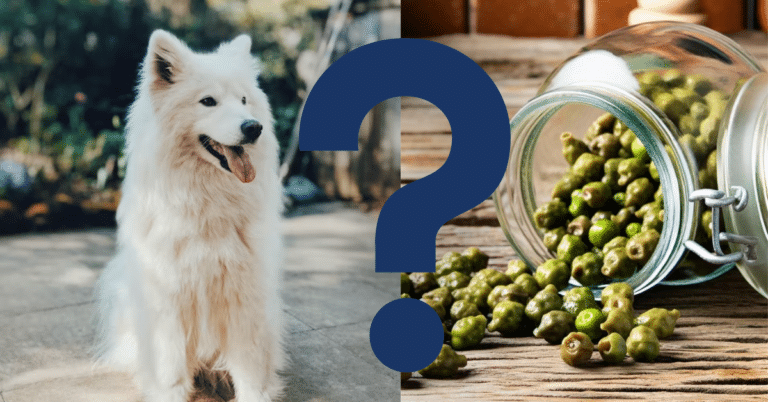Can Dogs Eat Lemons? A Vet’s Opinion

Lemons are a popular citrus fruit abundant in vitamin C, antioxidants, and other beneficial minerals, but can you feed lemons to your dog?
Lemons are generally not advised for feeding to dogs. Lemons are acidic and can cause vomiting and diarrhea in dogs. Lemons’ citric acid can also harm dogs’ teeth, causing enamel erosion. Furthermore, the essential oils in lemon peels and seeds can harm dogs and cause various health problems. It’s advisable to avoid feeding dogs lemons or other citrus fruits and instead stick to a well-balanced diet tailored to their nutritional requirements. Before introducing new food to your dog’s diet, consult your veterinarian.
Benefits Of Lemons For Dogs
While lemons are safe for dogs in small amounts, they are not a necessary element of a dog’s diet, and dogs have no specific health benefits. Lemons may harm dogs more than good due to their high acidity and essential oil content.
Consider the following points:
Vitamin C: Lemons are high in vitamin C, an essential component for humans. On the other hand, dogs can produce their vitamin C and do not require food supplementation.
Digestive upset: Dogs may experience gastric problems due to the high acidity of lemons. Lemons can cause vomiting, diarrhea, and abdominal discomfort if taken in large quantities.
Tooth Erosion: The citric acid in lemons can erode the enamel of a dog’s teeth, causing tooth sensitivity, cavities, and gum disease.
Toxicity: The essential oils in lemon peels and seeds can poison dogs. These oils include limonene, a chemical that can induce vomiting, diarrhea, and other gastrointestinal problems in dogs. Lemon peels and seeds can also be a choking hazard if consumed.
Other Safer Options: Besides lean meats, vegetables, and fruits that are safe for dogs, such as apples, blueberries, and carrots, many other safe and healthful foods may be integrated into a dog’s diet to give sufficient nutrition.
To summarise, while lemons are not necessarily poisonous to dogs, they should not be consumed frequently. Before introducing any new food to your dog’s diet, contact your veterinarian to confirm it is safe and suited for their needs. If you feel your dog has consumed a considerable amount of lemon or is showing any signs of stomach discomfort, you should seek assistance from your veterinarian.

How To Safely Give Lemons To Dogs
Feeding lemons to dogs is not generally recommended, and possible hazards are involved, as indicated in earlier comments. If you still want to give your dog a small quantity of lemon, here are some suggestions to follow for safe feeding:
Consult Your Vet: It is critical to consult with your veterinarian before adding any new food to your dog’s diet. They can advise you on your dog’s nutritional requirements and any potential health issues.
Choose organic lemons: If you opt to give your dog lemon, buy organic lemons that have not been treated with pesticides or other chemicals, as these might be hazardous to your dog.
Begin with a Tiny Amount of Lemon: Start with a tiny amount of lemon, such as a small squeeze of lemon juice or a small slice of peeled lemon without the seeds or skin. Keep a watchful eye on your dog for any signs of digestive problems, such as vomiting, diarrhea, or changes in appetite.
Remove the seeds and peel: Lemon seeds and peel harm dogs and can cause choking. Before giving your dog any lemon, remove all seeds and skin.
Dilute Lemon Juice: If you give your dog lemon juice, dilute it with water to lower acidity. A suitable starting point is one-part lemon juice to ten parts water.
Observe for Any Adverse Reactions: After giving your dog lemon, look for any symptoms of discomfort, stomach distress, or behavioral changes. If your dog reacts negatively to the lemon, stop eating it immediately and visit your veterinarian.
Consider Safer Alternatives: Some many other fruits and vegetables are healthy for dogs and can provide nutritional advantages similar to lemons without the hazards connected with lemons. For example, blueberries, apples (without seeds or core), and carrots are frequently tolerated by dogs and can be a safer option.
While it is generally not recommended to feed lemons to dogs, if you do, you must follow these instructions and speak with your veterinarian for help. It is critical to monitor your dog for any harmful effects regularly, and it is always advisable to err on the side of caution and seek safer choices for your dog’s diet.
Will Lemons Make A Dog Sick?
Lemons, due to their high acidity, have the potential to induce gastric discomfort in dogs. Lemons contain citric acid, which can irritate a dog’s gastrointestinal tract and cause vomiting, diarrhea, and abdominal discomfort. Some dogs may be more sensitive to citric acid than others, and even a tiny amount of lemon might create problems in some dogs. Furthermore, the essential oils in lemon peels and seeds can poison dogs, causing vomiting, diarrhea, and other gastrointestinal difficulties.
While not all dogs will become sick from eating lemons, it is vital to be cautious and avoid giving lemons or any citrus fruits to dogs because they are not an essential part of their diet and can offer health hazards. If you suspect your dog has eaten lemons or is exhibiting any signs of stomach discomfort, you should seek advice from your veterinarian.
Can dogs eat lemon variations?
As a general guideline, avoid giving dogs any lemon variations, such as lemon-flavored foods or items containing lemon as an ingredient. Lemon-flavored candies, baked products, or processed foods may have additional ingredients or more excellent sugar, salt, or other additives detrimental to dogs. It is critical to read ingredient labels constantly and to avoid feeding dogs human foods that have not been specifically tailored to their dietary needs.
Furthermore, as indicated in earlier replies, the high acidity and essential oil concentration of lemons could cause gastric discomfort and other health issues in dogs. Lemon variants contain citric acid, which can irritate a dog’s gastrointestinal tract and cause symptoms like vomiting, diarrhea, and abdominal discomfort.
If you want to give your dog a treat or snack, it’s best to stick to safe and healthful dog-specific products and consult with your veterinarian for advice. For your dog’s general health and well-being, it’s critical to prioritize a balanced and nutritionally suitable diet.

Vet’s Summary
In conclusion, while lemons are not suggested as a regular part of a dog’s diet due to their high acidity and potential to cause digestive upset, small amounts of lemon may be acceptable for some dogs if used in moderation, but only after consulting with a veterinarian. Lemon variations, including lemon-flavored foods or items, should be avoided due to potentially dangerous added additives.
Rather than feeding lemons or lemon variations to dogs, it is often safer and more advantageous to focus on a balanced and nutritionally suitable dog diet. If you are concerned about your dog’s intestinal health, you should seek advice from your veterinarian, who may offer probiotic supplements if necessary. Probiotic pills for dogs can help sustain healthy gut flora. They may be advised in specific circumstances, such as when a dog has digestive troubles or has been on antibiotics. However, it is critical to always follow your veterinarian’s advice and standards when contemplating any dietary supplements for your dog.
Videos To Watch
If you are wondering if you can give your dog lemons, watch this:
And if you want to know what a dog can NOT eat, watch this:






